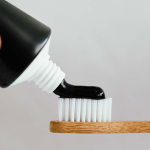Introduction
When it comes to oral health, there’s no shortage of advice—some true, some not so much. With so many myths about dentistry floating around, it can be hard to separate fact from fiction. At ConfiDental Surbiton, we’ve heard it all. That’s why we’ve put together this guide to help debunk some of the most common misconceptions about oral health and dental care. Whether you’re a seasoned patient or someone who’s overdue for a visit, this article will help you make better decisions for your smile.
Myth 1: White Teeth Are Healthy Teeth
Many people equate a bright white smile with excellent oral health, but this isn’t always the case. While white teeth can be aesthetically pleasing, their colour doesn’t necessarily indicate good health. Teeth naturally vary in shade due to genetics, age, and lifestyle factors such as diet and smoking.
More importantly, underlying issues like cavities, gum disease, or enamel erosion might not be visible, even if your teeth look white. Regular check-ups are essential for maintaining overall oral health, regardless of how your teeth look.
Myth 2: Brushing Harder Means Cleaning Better
A common mistake many people make is brushing their teeth too aggressively, believing it’s the best way to remove plaque and stains. In reality, brushing too hard can damage the enamel and irritate your gums, potentially leading to gum recession and sensitivity.
Instead, focus on using a soft-bristled toothbrush and gentle, circular motions. Pair this with fluoride toothpaste and brush for two minutes twice a day for optimal results. It’s not about force—it’s about technique.
Myth 3: You Only Need to Visit the Dentist If You Have a Problem
One of the most damaging myths is that you only need to see a dentist when something hurts or feels off. Routine dental visits play a crucial role in preventative care. Dentists can identify early signs of issues like cavities, gum disease, or oral cancer before they become serious problems.
By scheduling regular check-ups, typically every six months, you can save yourself from more invasive (and expensive) treatments down the line. Prevention is always better than cure when it comes to dental health.
Myth 4: Sugar Is the Sole Cause of Cavities
While sugar is often blamed as the primary culprit behind cavities, it’s only part of the story. Cavities form when bacteria in the mouth feed on carbohydrates, producing acid that erodes tooth enamel. This means any carbohydrate-rich foods, including bread, pasta, and fruit, can contribute to cavity formation if oral hygiene is neglected.
What matters most is not how much sugar you consume, but how long it lingers on your teeth. Brushing and flossing after meals can help reduce the risk of decay, no matter your diet.
Myth 5: Baby Teeth Don’t Matter
Because baby teeth eventually fall out, some parents assume they don’t require much care. However, the health of primary teeth is crucial for a child’s overall development. They serve as placeholders for adult teeth and play a key role in speech development and chewing.
Neglecting baby teeth can lead to pain, infections, and even problems with the alignment of permanent teeth. Establishing good oral hygiene habits early sets children up for a lifetime of healthy smiles.
Myth 6: Dental Treatments Are Painful
Fear of pain keeps many people from seeking the dental care they need. Thankfully, modern dentistry has come a long way. With advancements in technology and anaesthesia, most procedures are now relatively painless.
Whether it’s a filling, root canal, or tooth extraction, dentists use techniques to minimise discomfort. Communicating any concerns or anxieties with your dentist can also help ensure a more comfortable experience.
Myth 7: Mouthwash Can Replace Brushing
Mouthwash is a great addition to your oral hygiene routine, but it’s not a substitute for brushing and flossing. While mouthwash can freshen breath and help reduce bacteria, it doesn’t remove plaque and food particles as effectively as brushing and flossing.
Think of mouthwash as a supplementary step. To maintain optimal oral health, stick to the basics: brush twice daily, floss regularly, and use mouthwash as a finishing touch.
The Importance of Staying Informed
With so much misinformation out there, it’s easy to fall for dental myths that could harm your oral health in the long run. By understanding the truth behind these common misconceptions, you’re better equipped to make informed decisions for yourself and your family.
Next time you come across a piece of dental advice, take a moment to question its validity. Consult your dentist or trusted resources to ensure you’re doing what’s best for your smile. After all, your teeth deserve nothing less than the truth.
Lynn Martelli is an editor at Readability. She received her MFA in Creative Writing from Antioch University and has worked as an editor for over 10 years. Lynn has edited a wide variety of books, including fiction, non-fiction, memoirs, and more. In her free time, Lynn enjoys reading, writing, and spending time with her family and friends.















